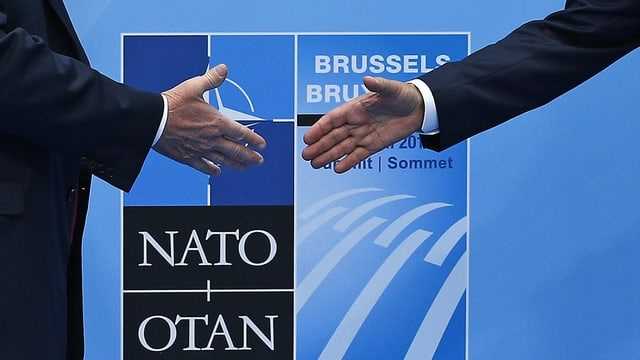NATO has always ruled out military intervention in Ukraine. The military alliance has also disappointed Kiev’s hopes on several occasions when it comes to arms deliveries. However, last week NATO decided to start supplying heavy weapons to Ukraine as well. For expert Claudia Major from the Science and Politics Foundation, the step is understandable.
SRF News: Is NATO giving up its reluctance to deliver arms to Ukraine?
Claudia Major: No. I would say that NATO is sticking to its original position. She says that the NATO states will not actively become a party to the war themselves, for example by sending their own troops or setting up a no-fly zone. Nothing changed in this position last week either. But Allianz has actually moved below this position and is repositioning itself.
The NATO countries are now saying we have to deliver more, we have to deliver faster. And we also have to deliver heavier material. Armored personnel carriers, for example. And: We must also consider supplying material on which the Ukrainian armed forces first have to be trained.
At the beginning of the war, NATO stopped delivering heavy weapons. The argument: you don’t want to provoke Russia. Why this change of heart now?
On the one hand, because the endless cruelty of this war, as waged by Russia, has been seen again and again. At the siege of Mariupol, where no consideration was given to civilians and civilian infrastructure. But even after the withdrawal of Russian troops from the Kyiv suburbs, where war crimes were committed. This has made it clear to the Western community that Russia appears unwilling to back down from its war goal of control of Ukraine.
How the war ends decides what peace will be like.
From the point of view of the western states, Russia should not win such a war of aggression and annihilation. This means that Ukraine must be given all the more power to defend itself and to reconquer occupied territories. Because the way the war ends, it will be decided how peace will be, how sovereign Ukraine will be, what borders it will have.
Securing peace and stability is one of NATO’s own goals and values. Hasn’t it already failed in the case of Ukraine?
NATO’s core task is that of a defensive alliance. This is the protection of their own allies. The measures she has taken in recent weeks have been defensive, non-escalatory and appropriate. They aimed to protect the NATO countries’ own territory. After all, NATO is not the world policeman who is supposed to ensure stability worldwide.
In war we see once again the importance of a defensive alliance.
If a country is a member of NATO – and that is the bitter truth from this war – it has a promise of protection. Non-members like Ukraine, Georgia, Moldova or Bosnia do not have this promise. With the war in Ukraine, we now understand all the more why Ukraine wanted to become a member of NATO: Because it would then have been protected, because there was hope that Russia would have accepted NATO’s protective shield. This means that in war we see once again the importance of a defensive alliance.
The conversation was conducted by Sandro Della Torre.

